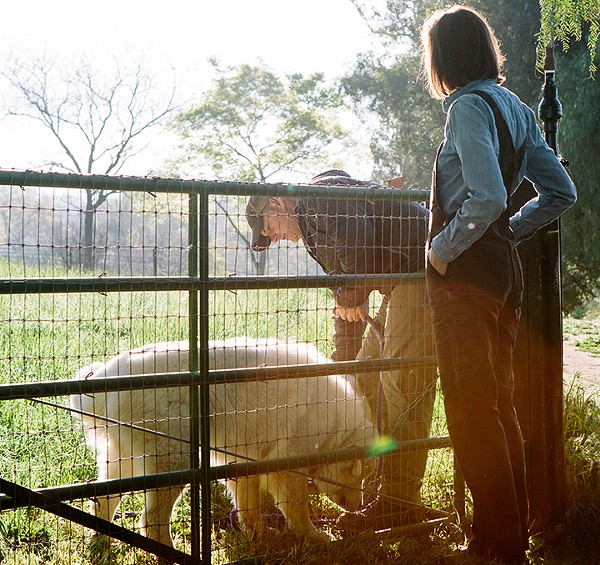The Biggest Little Farm
The Biggest Little Farm, 2019, 2 ¾ stars
Homegrown
Farm is organically endearing
From The Orlando Weekly, May 15, 2019
Some cinephiles divide documentaries into two categories: those that discuss history (The Sorrow and the Pity, Ken Burns’ films) and those that reveal events as they unfold (Harlan County U.S.A., Among the Believers). If The Biggest Little Farm, the new nature doc by John Chester, had to be pigeonholed, it would get stuffed into the latter category. But it really belongs in a third group: the essay.
We’ve all seen essay docs before but perhaps didn’t know how to categorize them. These genre-bending movies often defy explanation and appear just as close to narrative fiction as to traditional documentary filmmaking. Some of Michael Moore’s projects, especially Roger & Me, fall into this realm, along with Orson Welles’ cult classic F for Fake and unique profiles such as Crumb and Grey Gardens. But what makes The Biggest Little Farm unusual is it has one hand, or paw, in essay filmmaking, another (unfortunately) in self-promotion and still another in a category akin to Disneynature films. The mix isn’t entirely successful, but its joy is infectious.
The film relates the nearly decade-long odyssey of John and his wife, Molly, as they turn 200 acres of barren California land into Apricot Lane Farms. The endeavor ultimately becomes a home for organically grown food while teaching us that nature should be trusted and even the so-called pests serve a purpose.
“Everyone told us this idea was crazy, that attempts to farm in harmony with nature would be reckless if not impossible,” John tells us by voiceover, which is equal parts endearing and cloyingly tedious.
But the story at the film’s heart, not to mention the breathtaking cinematography, is anything but tedious. It’s inspiring, and will undoubtedly lead to a sales boon for Apricot Lane, meaning the movie is a win-win for the Chesters.
The doc is best when it dials back its narration and overscoring and focuses on its animals. Tackling the question of whether humans have the right to raise and slaughter other living creatures is probably too much to ask of a family film such as this, so the movie avoids that difficult topic almost completely. But it does give a voice to dogs, pigs, sheep and chickens, all of whom have an important role.
Even ducks play a part. When their pond is ruined by a toxic algae bloom, they become homeless. Meanwhile, the farm’s trees are being eaten alive by snails. Turns out, ducks love snails! So the Chesters release them into the orchard, where they munch mollusks to their feathery hearts’ content. It’s the circle of life, courtesy of quackers. Take that, Lion King!
© 2019 Orlando Weekly / MeierMovies, LLC
